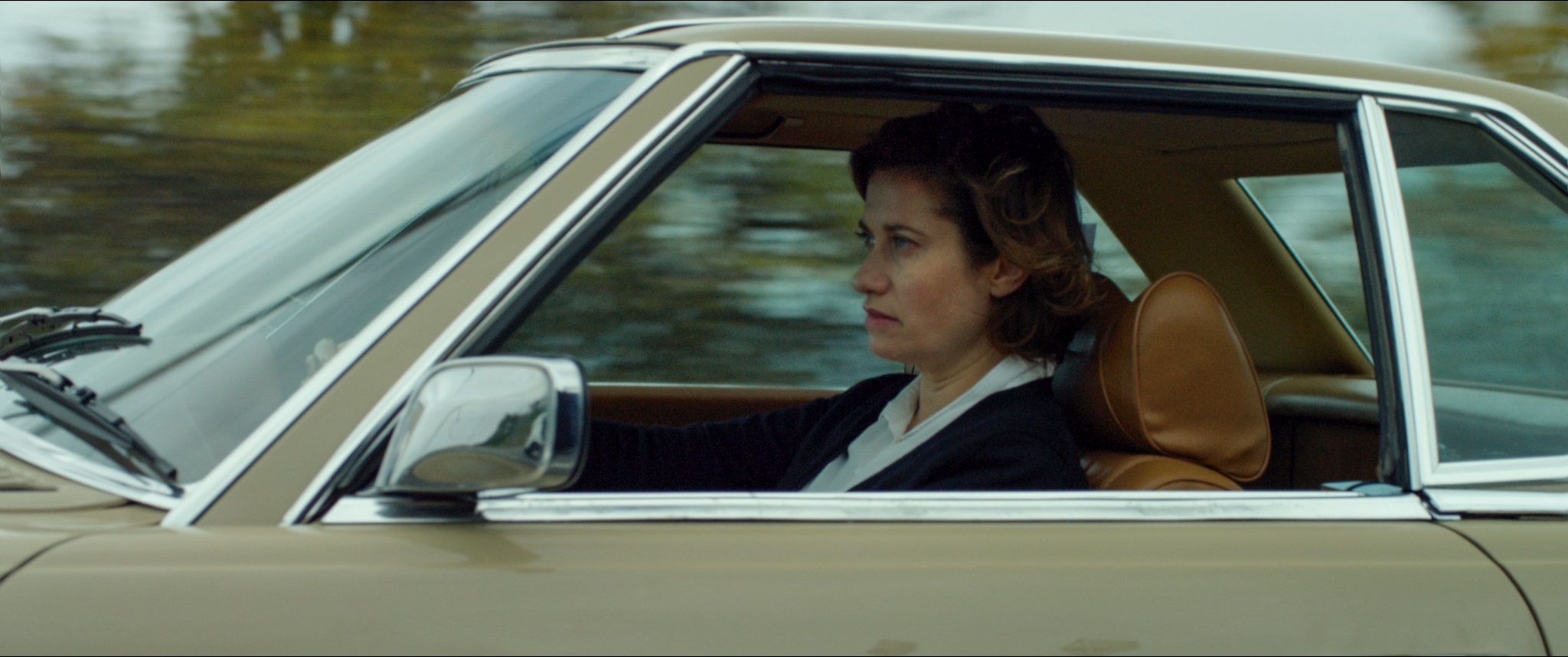Moka is a slow movie. It’s not a long one, clocking in at only 90 minutes, and it’s not poorly paced, either. But it is a slow film. Over the course of its runtime, not a whole lot actually happens. The plot is simple — a woman named Diane’s son is killed in a hit and run accident, and by tracking down the car, a coffee-colored coupe, she believes she has found the couple responsible.
And that’s where everything would go down in most films, maybe in a Blue Ruin-style murder early on or a long, carefully-plotted assassination attempt. But in Moka, that never happens. Sure, Diane buys a gun at one point and continually stalks the family, but she never pulls the trigger on what she so clearly wants to do. Instead, she gets to know the blonde woman she believes to be the driver, Marlène, and her partner, Michel. Diane cozies up to each of them separately, and while there are multiple times it feels like she could snap, it becomes clear that this film is about more than simple revenge.
It’s a deep dive into the psychology of grief and how it makes people act. In movies, it can often be reduced to a simple formula: Find the person who hurt you, then hurt them. Easy. But in real life, as characters in the film mention to Diane several times, that’s not an option. And if it were, would it really help?
Instead, Diane spends the movie burying herself deeper and deeper, not only in her own grief but in the dark secrets of the family she’s infiltrated. As she becomes something resembling friends with Marlène, her situation become complicated by the emotions she wishes she could cure with a few gunshots.
When the film finally reaches the climactic twist, it almost feels unnecessary. Gun in hand, Diane comes face to face with the true culprit of the accident — for bizarre reasons best left to the film. In that moment, she’s faced with the strangest choice possible in a film of this style — murder or forgiveness.
It’s a tense moment, and the filmmakers know it, playing with the audience’s expectations of thrillers. But in the movie’s attempt to subvert those expectations, its conclusion falls a bit flat. Should we really believe that forgiveness is a fitting end to a movie based on revenge? It’s a hard pill to swallow, but Moka just barely makes it work.
While the ending pushes the film’s believability, Moka is still a tense, methodical thriller that uses the natural beauty of the film’s setting and pauses between the elegant simplicity of the French dialogue to great effect. You feel for Diane even when her decision making is almost utterly unrelatable, and the subtle hints that the whole thing could go poorly at any second suddenly turn a placid lake into a very dangerous one. It’s a movie that will sit with you only briefly after you watch it — but for that hour or two, it will be all-consuming.
3/4 shells



